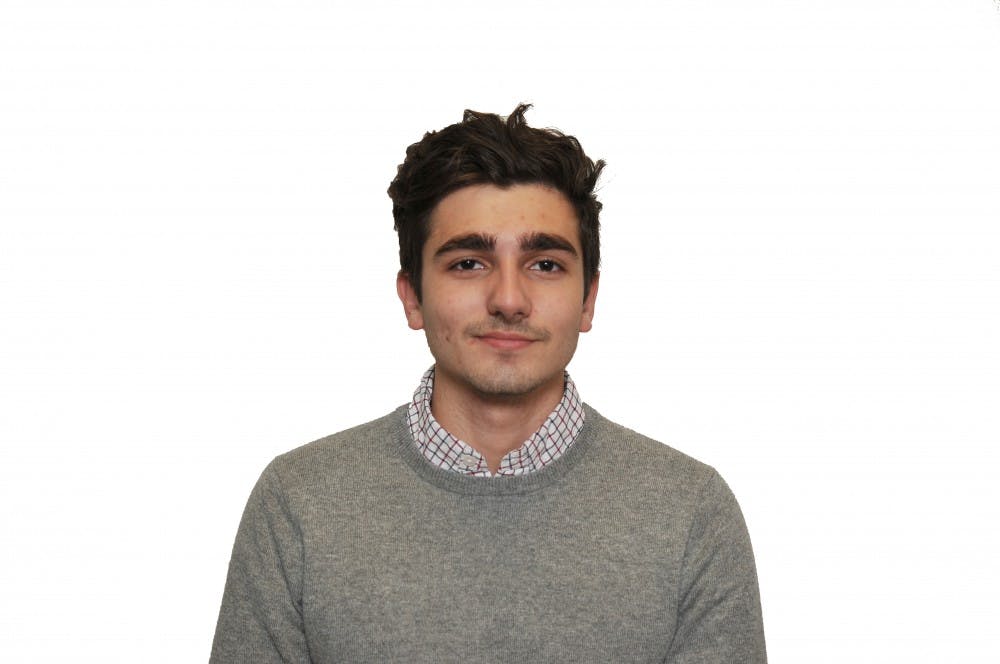Last week, The Harvard Crimson published an article by student Ian Mullane titled “The Privileged Liberal.” The piece is a quite vicious attack against students of wealthy or “privileged” backgrounds who happen to identify as liberal, a stance which Mullane believes is hypocritical. He sums up his argument best when he asks, “Why is it, however, that the children of the nation’s elite seem to have such disdain for the very system [capitalism] that, whether or not they’d like to admit, grants them many of the luxuries they enjoy?”
Mullane certainly makes an interesting case, but from the beginning it becomes obvious that much of his disdain for the so-called “privileged liberals” comes from the fact that they, he claims, think they know how to alleviate poverty in America without ever having been subject to this poverty. By arguing this, Mullane seems to insinuate that people should only be allowed to have political beliefs according to their economic status. If you’re poor, you can be a liberal; if you’re rich, you can’t.
First, Mullane should be reminded that, believe it or not, the United States is not a completely capitalist country. It sounds pretty insane, I know, but the United States does not have what an economist would deem “full economic freedom.”
A purely capitalist society would have almost no regulation and taxes, no subsidies and bailouts and a government that pumps almost no money into its economic system. Yet, local, state and federal government expenditures amounted to 39 percent of gross domestic product in the United States last year, and taxes, subsidies and regulations have been a mainstay in America since the creation of the Federal Reserve in 1913.
Considering that America has not been fully capitalist for well over a hundred years, Mullane’s assertion that liberal students have disdain for the system that gave them their wealth in the first place is absolutely absurd. Despite the surging popularity of Bernie Sanders, a self-described democratic socialist, not all liberals at Harvard or Penn or any other college in America are Marx-worshipping communists.
Most liberals in this country want a capitalist system with some socialist policies, such as government regulations on business, that have been implemented many times before in the United States. Therefore, to be liberal is not necessarily to be anti-American, as Mullane would seem to suggest.
On top of that, if wealthy liberals are hypocritical according to Mullane, poor conservatives must surely be as well, right? If those who have benefited from capitalism ought to defend it, then those who have suffered at the hands of capitalism ought to attack it, simply based on Mullane’s logic.
Yet, in this country, many citizens who earn less than $50,000 a year tend to vote conservative. Of the 10 states with the lowest median income in 2008, nine of them supported John McCain. Mullane probably could have written a similar article focusing on why poor people tend to vote for conservatives, but that probably wouldn’t have fit his agenda.
Finally, Mullane doesn’t seem to understand that people don’t choose their politics simply for themselves. Based on the assumption that all human beings are greedy and only care about themselves, then maybe those who are already in the 1 Percent should support policies to make themselves even richer, such as tax breaks and a trickle-down economic platform.
It is, however, indeed possible for people to be extremely wealthy and want others who are less fortunate in this country to succeed. Just because someone supports a policy that would theoretically benefit those in a different economic class, such as increased welfare, it doesn’t mean that the person is committing treason on their own party. We don’t owe our own economic classes anything; in fact, it might even be better to care for those different than ourselves.
We know that there are Penn students who are the children of millionaires and billionaires, and we know that there are students who rely on financial aid to be here. But we are intelligent enough to formulate our own personal opinions on which politics to subscribe to, be it liberal, conservative or somewhere in the middle.
We are not obligated to support systems just based on the color of our skin, our sexuality and our financial well-being, and don’t let someone like Ian Mullane tell you so in the first place.
ALESSANDRO VAN DEN BRINK is a College sophomore from New York, studying economics. His email address is alevan@sas.upenn.edu. “Small Talk” usually appears every other Wednesday.
The Daily Pennsylvanian is an independent, student-run newspaper. Please consider making a donation to support the coverage that shapes the University. Your generosity ensures a future of strong journalism at Penn.
DonatePlease note All comments are eligible for publication in The Daily Pennsylvanian.








